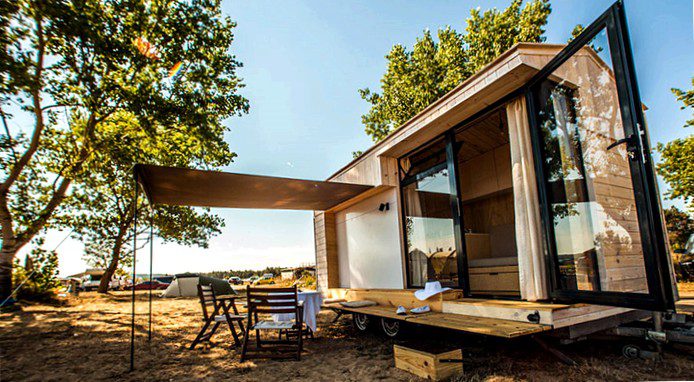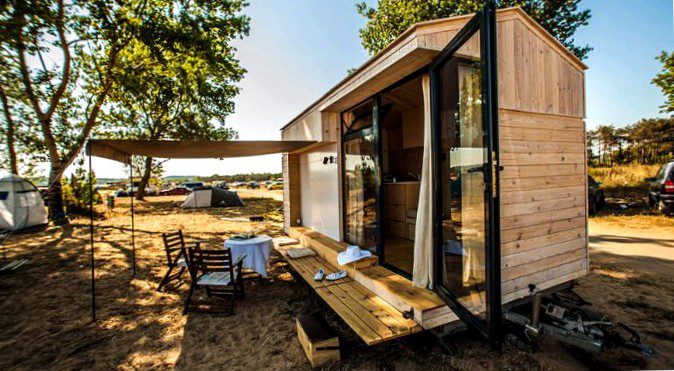
The freedom-loving people, for whom the noisy vacation centers are anathema, but who do not want to give up the home comforts even when they are far away, are becoming more and more. For them, Bulgaria now also offers a solution – architect Christina Christowa has designed a vacation home on wheels. It's called "Koleliba" – a word creation from the Bulgarian words for wheels "Kolela" and for hut "Koliba".
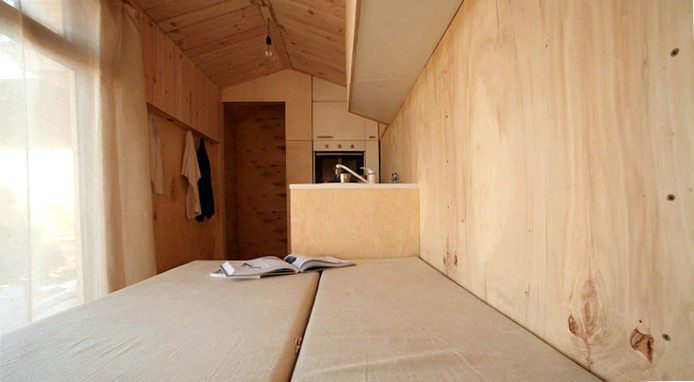
The residential cabin is a whole wagon and was designed as a trailer that can be towed by an ordinary passenger car. But what is new about the architect's project??
"In it there is a pull-out couch where you can sleep, but also a kitchen, a bathroom, and there is plenty of storage space," says Christina Christowa. "Everything you need to live has found a place in it – on about 9 square meters of space. The idea itself, of course, is not new – it first appeared in the U.S. However, there was something quite different behind this: people wanted to save on real estate taxes and also avoided taking out mortgages. However, my house on wheels also differs from those in other countries. With them, in order to save space, everything is shoved into each other and you hardly have any air in it. But the space was important to me, because you have to be comfortable in it – just like at home. Nothing is dwarfed in my project; everything is standard size."
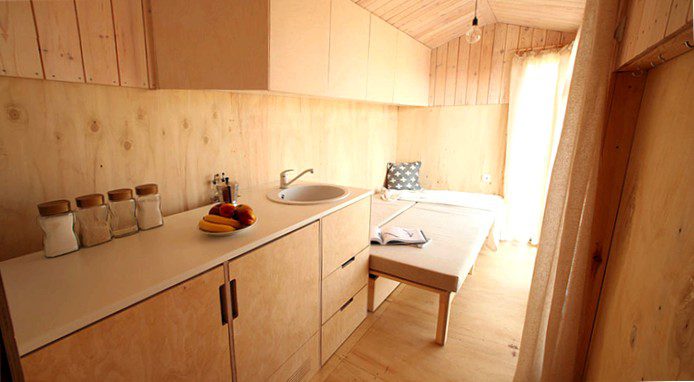
Over time, the architect came up with many new ideas, such as a bio-museum of eco-diversity and a mobile classroom, into which her house can be transformed on four wheels. Christina Christowa attaches great importance to the quality of life:
"My project is highly energy effective, moreover, it does not leave any trace in the landscape. In contemporary architecture there is just the problem of concreting the landscape," continues the architect. "In recent times, the so-called "off-the-grid," d.h. the off-grid way of life particularly modern. However, my house on wheels is not designed that way – it can be connected to water, electricity and other energy sources. It is also habitable all year round. It has the necessary heat and moisture insulation and has a small air conditioner for all seasons."
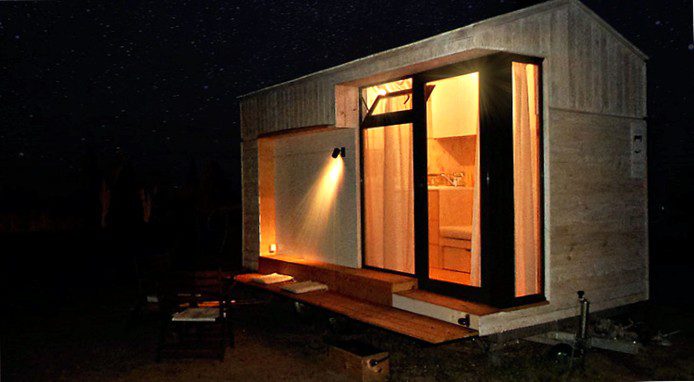
It turns out that in Bulgaria, if you want to live in a mobile house, you have to deal with a lot of bureaucratic red tape. The simplest variant was to report the house on wheels as a trailer with which various cargos can be transported. Non-standard freight, as is the case with the house on wheels, but must obtain a license separately. This requires a special technical inspection, which is usually only carried out on imported goods. The problem is aggravated by the fact that each house on wheels is completely individualized and must be tested and registered separately accordingly. The architect, however, is not deterred by this and aims to facilitate the registration of her mobile housing creations.
